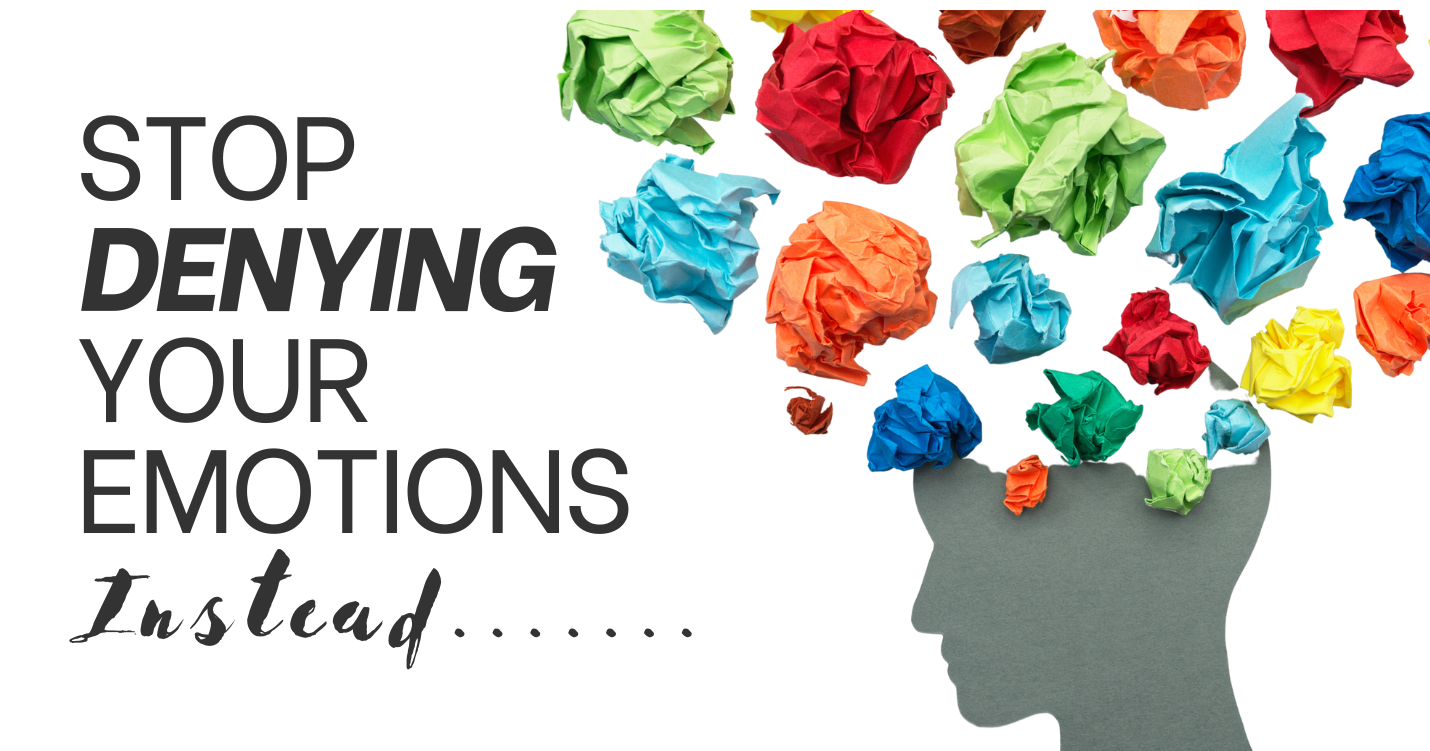Stopping the denial of emotions is an important step toward emotional well-being. Here are some strategies to help you stop denying your emotions and start facing them:
1. Self-Awareness: Cultivate self-awareness by paying attention to your thoughts, physical sensations, and behaviors. Take notice when you’re feeling something, and try to label the emotion. Acknowledge that emotions are a natural part of being human.
2. Mindfulness Practices: Engage in mindfulness activities such as meditation, deep breathing, or body scans. These practices help you stay present in the moment, allowing you to observe and accept your emotions without judgment.
3. Journaling: Keep a journal to track your emotions. Write down what you’re feeling, when you’re feeling it, and any thoughts associated with those emotions. This can help you recognize patterns and gain insights into the reasons behind your emotions.
4. Challenge Denial Thoughts: If you catch yourself denying or minimizing your emotions, challenge those thoughts. Ask yourself why you might be avoiding the feelings and whether it’s serving your well-being in the long run.
5. Normalize Emotions: Understand that experiencing a wide range of emotions is normal. Avoid labeling emotions as “good” or “bad.” Instead, recognize them as signals that provide information about your inner state.
6. Express Emotions Safely: Find healthy ways to express your emotions. This could involve talking to a friend or therapist, engaging in creative activities, or participating in physical exercise. Expressing emotions in constructive ways can prevent them from being bottled up.
7. Permission to Feel: Give yourself permission to feel. It’s okay to experience a full range of emotions, and they don’t define your worth. Embrace the idea that vulnerability and authenticity are strengths, not weaknesses.
8. Set Realistic Expectations: Understand that it’s unrealistic to expect yourself to be happy and positive all the time. Emotions are fluid and can change. Allow yourself to experience the ebb and flow of different feelings.
9. Learn from Emotions: View emotions as valuable sources of information. They can provide insights into your needs, values, and boundaries. Instead of seeing them as obstacles, consider them as messengers guiding you toward personal growth.
10. Seek Support: Share your emotions with a trusted friend, family member, or therapist. Opening up to others can provide validation and support, making it easier to confront and accept your feelings.
Remember that breaking the habit of denying emotions is a process that takes time and effort. Be patient with yourself and celebrate small victories along the way. If you find it challenging, seeking support from a mental health professional can offer additional guidance and tools.


